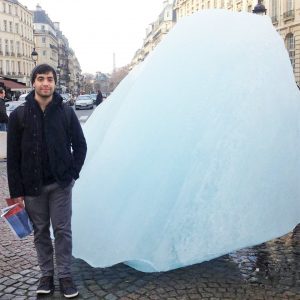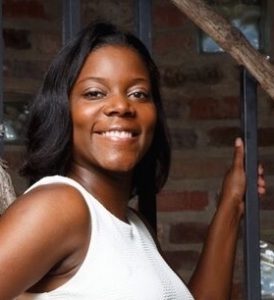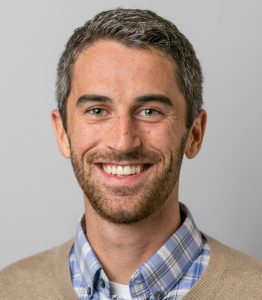MARK ORTIZ
After graduating from the University of Alabama in 2015, I entered the geography PhD program to deepen my knowledge of climate change politics and ethics. Now in my third year of study, my research draws together the environmental humanities and moral philosophy to develop engaged understandings of youth climate justice activism. Focusing on Our Children’s Trust’s youth-led climate lawsuit in the U.S. and transnational youth advocacy within the United Nations climate policy process, my PhD project explores expressions of intergenerational ethics and their relevance to contemporary climate policy and law.
As an aspiring public scholar, I strive to connect my research to policy and contribute to broader discussions of climate change at various scales through public writing, participatory methods, community organizing and advocacy. As part of this side of my work, I helped found an initiative at UNC which allows students to participate in UN climate negotiations as accredited observers. Our first delegation attended the climate talks in Bonn, Germany last November where we reported on the proceedings for the Daily Tar Heel. Locally, I serve on the leadership team of the North Carolina Climate Justice Summit, an annual gathering which brings together advocates from around the state to build community-based, intersectional understandings of climate justice. As a Climate Reality Leader and Mentor, I have also worked alongside former Vice President Al Gore to equip community leaders in the U.S. with the tools and knowledge to educate their peers and engage elected officials on climate change. My work aims to connect the modern university to its local communities and publics, as well as pressing global issues, to create spaces for transformative, publically-engaged scholarship.
I am a Royster fellow and doctoral candidate in American Studies at UNC-Chapel Hill. My research interests include black material culture, southern studies, and oral history, and I use community-oriented research methods and documentary fieldwork to explore, examine, and preserve the aesthetic and cultural worlds of African Americans in the American Deep South. I have worked as an oral historian for several organizations, including Jackson State University’s Margaret Walker Center, where I documented the Farish Street historic district; the Southern Foodways Alliance, where I documented black-owned restaurants in Jackson, MS; UNC’s Southern Oral History Program, where I collected interviews for Back Ways, an interdisciplinary research project that seeks to uncover the social experience of racial segregation in rural parts of North Carolina; and the forthcoming Catfish Row Museum in Vicksburg, MS. My experience also includes leading a collaborative research project in Mound Bayou, MS, with funding from the Historic Black Towns and Settlements Alliance. My dissertation, “The House that Black Built: Black Women, Materiality, and the Creation of Culture in the Rural South,” uses oral history to explore the creative and material worlds of black women in the Deep South. I am a native of Jackson, Mississippi, and a proud graduate of Alcorn State University (B.A., English) and UCLA (M.A., African American Studies).
I am a PhD candidate in the Linguistics Department here at UNC. My dissertation research focuses on documenting the phonetic differences between dialects of S’gaw Karen, which is an understudied language spoken by Karen refugees from Burma. I am also interested in how the language is changing here in the diaspora. My interest in S’gaw Karen began in a Linguistic Field Methods course in the Fall of 2012, where I was introduced to the Karen refugee population here in Orange County and learned that there was little known about their language. Since then, I have worked closely with members of the local Karen community to document and record the language. I have also formed valuable relationships with local organizations that work with the Karen, such as the Transplanting Traditions Community Farm and the Refugee Support Center in Carrboro, NC.
My work with the Karen community over the past five years has taught me about the unique challenges that they face. There is a critical lack of S’gaw Karen language resources, including translation services and up-to-date dictionaries. This lack of resources creates an additional logistical challenge for Karen refugees seeking to acclimate to a new life in the United States. In order to address some of these needs, I joined a refugee outreach committee started by Dr. Morgan Pitelka of the Carolina Asia Center in the Fall of 2017. The goal of this committee is to establish an interdisciplinary working group that will provide necessary resources, including critical language materials, for local refugees for years to come.
I am a 5th-year PhD candidate in philosophy, with teaching and research interests in ethics, social philosophy, and political philosophy. My dissertation focuses on the nature and value of trusting attitudes, with a particular focus on trust of groups. In an increasingly social and complicated world, we seem to have more relations with groups than ever before, from the Big Tech companies to State and Federal police agencies. Whether or not we trust these groups, and whether or not we are warranted in trusting them, may make a big difference in the quality of our lives. I explore what we might gain (or lose) by trusting such groups, what makes their betrayals so awful, and what may be required to warrant trust in the first place.
I also work with those outside the University to think through what we value in life, and how we might realize those values in our communities. As an Outreach volunteer for the Parr Center for Ethics, I join primary and secondary school philosophers as we think through ethically challenging cases to try to make sense of what we value, why we value it, and how we might recognize instances where those values help us to live well. As a member of the Community Policing Advisory Committee, I serve as a liaison between Chapel Hill communities and the Chapel Hill Police Department, working to better understand and implement community visions of public safety. In the fall, I will attend law school, working with new communities to eliminate legal barriers to flourishing.
When I am not working, I am sharing life with friends and family, exploring our magical worlds.




